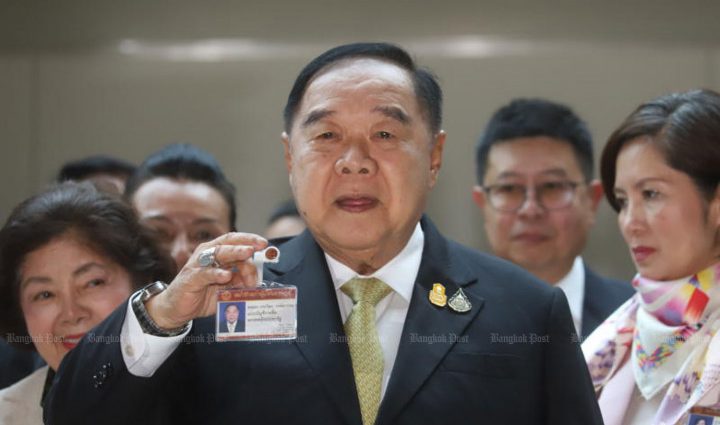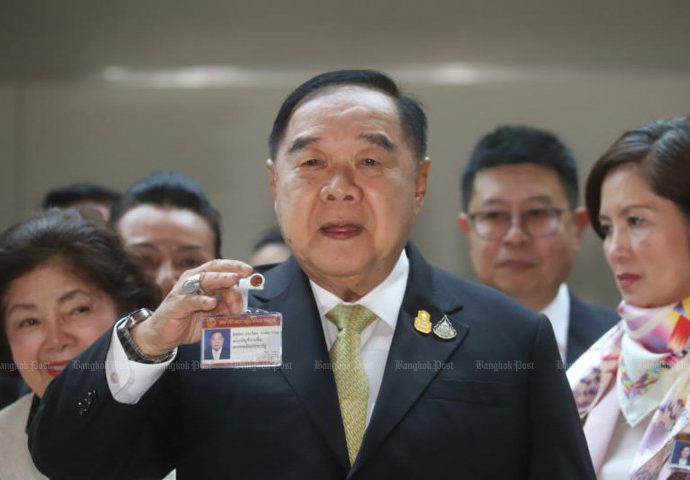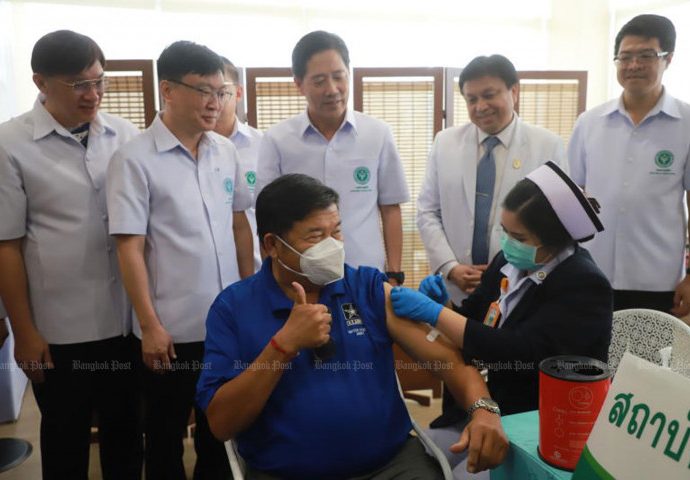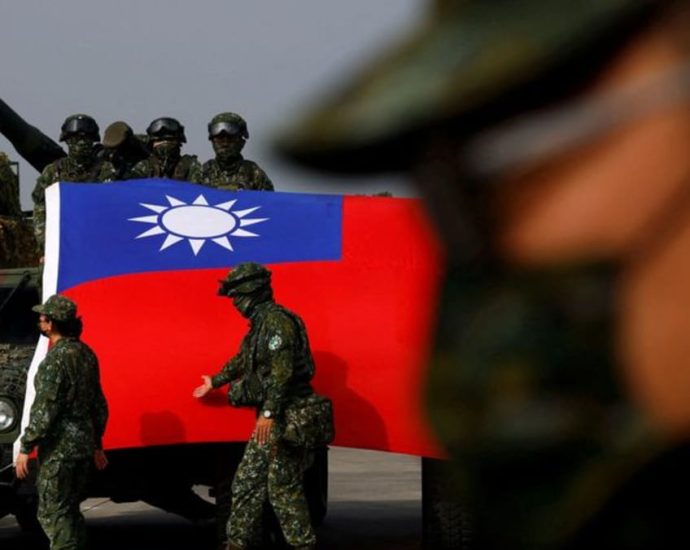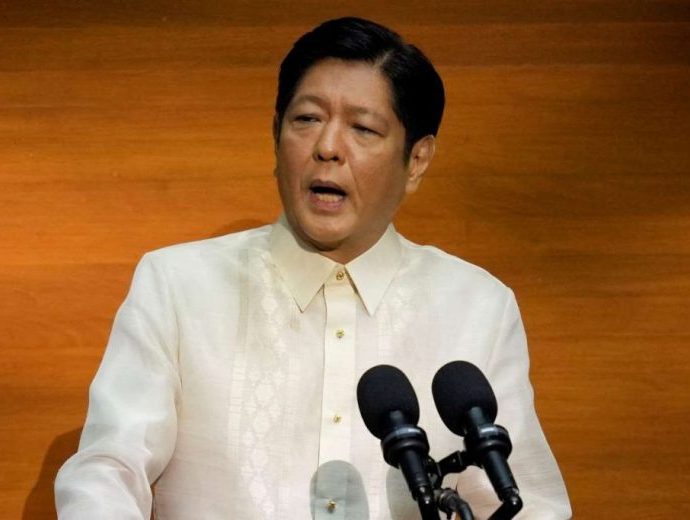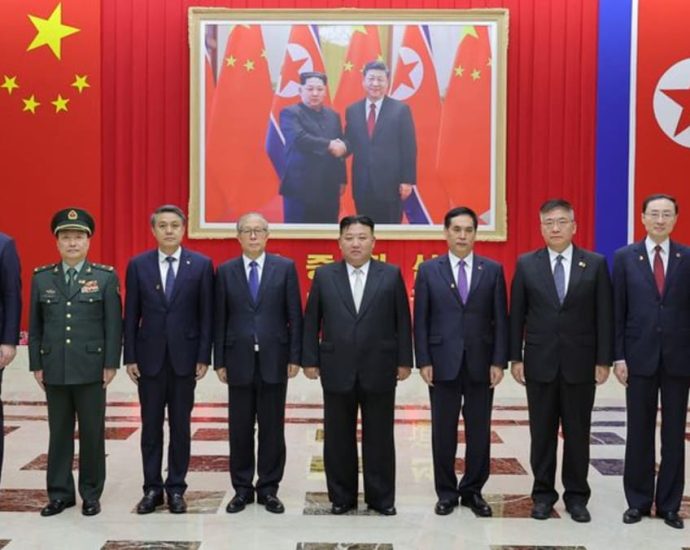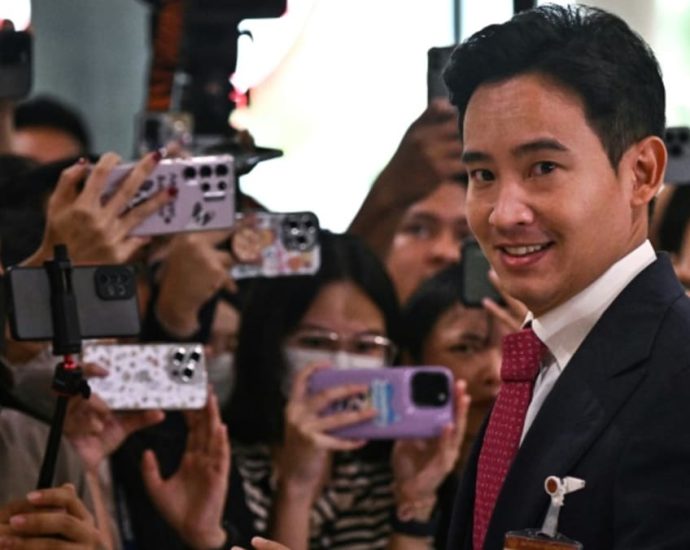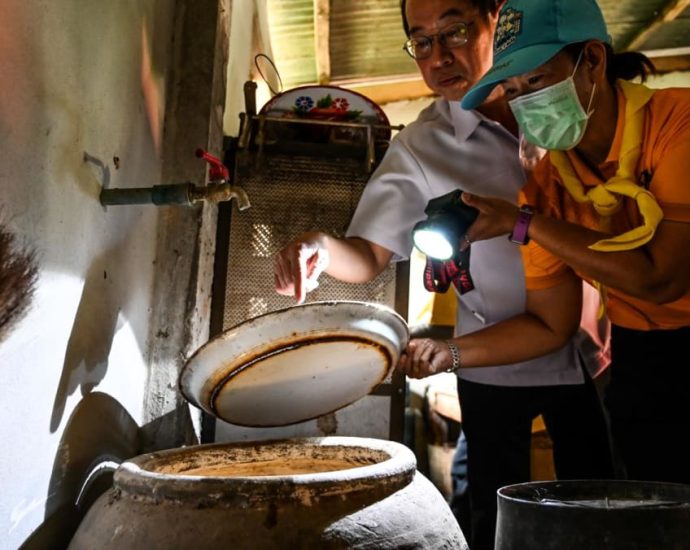Prawit re-elected as PPRP leader
Brother named chief adviser in move seen as paving the way for possible tie-up with Pheu Thai
PUBLISHED : 29 Jul 2023 at 10:57
UPDATED : 29 Jul 2023 at 21:11

Gen Prawit Wongsuwon has been re-elected as the Palang Pracharath Party leader, hours after stepping down from the position on Saturday morning.
The resignation of Gen Prawit, who also serves as a caretaker deputy prime minister, was strictly a procedural move, as the party board was also obliged to step down under the rules. That set the stage for the voting process to elect a new party leader and a 21-member executive board.
Palang Pracharath MP Atthakorn Sirilatthayakorn nominated Gen Prawit for the top post, and he was the sole candidate.
The unofficial voting results showed that Gen Prawit had made a comeback as the party leader. The five new deputy leaders elected are Santi Promphat, Paiboon Nititawan, Chaiwut Thanakamanusorn, Wirat Rattanaset, and Trinuch Thienthong.
Gen Prawit’s younger brother Pol Gen Patcharawat Wongsuwon, an unelected senator and former national police chief, was also appointed as the party’s chief adviser. That move was seen as possibly paving the way for the PPRP to join a new government if a deal can be reached with the Pheu Thai Party, according to sources
Capt Thamanat Prompow, a key figure of the PPRP and MP for Phayao, became the party’s secretary-general again. He, along with 20 other MPs under his control, had been ousted from the party last year for plotting against Prime Minister Prayut Chan-o-cha.
Before the voting started, Mr Paiboon said, “Gen Prawit will remain in the party and will always look after it.”
According to a party source, Gen Prawit did not attend the meeting.
This week, the election-winner Move Forward Party (MFP) stressed that it will not form a government with the PPRP and the United Thai Nation (UTN) Party as its coalition partners, calling them “remnants of a dictatorship”.
Prawit resigns as PPRP leader
PUBLISHED : 29 Jul 2023 at 10:57

Gen Prawit Wongsuwon, the leader of the Palang Pracharath Party (PPRP), stepped down from his position on Saturday, creating an opportunity for a new executive board to take charge.
PPRP deputy leader Paiboon Nititawan on Saturday confirmed Gen Prawit’s resignation with immediate effect.
Speaking during the party’s general assembly Mr Paiboon told PPRP members that Gen Prawit tendered his resignation on Saturday morning.
“Gen Prawit will remain in the party and will always look after the party,” said the deputy leader.
The resignation of Gen Prawit, who also serves as a caretaker deputy prime minister, resulted in an automatic end to the PPRP’s executive board under his tenure, paving the way for the election of a new party leader and executives.
Mr Paiboon then called an election to seek a new party leader. During the meeting, Gen Prawit was nominated again as the party leader, and he was the sole candidate for the post.
According to a party source, Gen Prawit did not attend the meeting.
This week, the election-winner Move Forward Party (MFP) stressed that it will not form a government with the PPRP and the United Thai Nation (UTN) Party as its coalition partners, calling them “remnants of a dictatorship”.
Indonesia seeks damage control after Musk snub

JAKARTA – Indonesian Maritime Affairs and Investment Coordinating Minister Luhut Panjaitan is seeking a meeting with Elon Musk after the multibillionaire carmaker left him with egg all over his face by spurning Indonesia and choosing Malaysia for his Southeast Asian headquarters.
Panjaitan had made the world’s richest man an irresistible target of the Indonesian government’s efforts to attract heavyweight investors to a country on the way to a major expansion into nickel-based batteries and electric vehicles (EVs).
But the talks went quiet in the latter part of 2022 and Malaysian Prime Minister Anwar Ibrahim’s announcement that Musk’s Tesla auto company was establishing a regional office and service center in Selangor, the state surrounding Kuala Lumpur, took the Indonesians by surprise.
Malaysia sweetened the pot by allowing Tesla to import its latest Model 3 and Model Y models, whose launch contributed to the firm raising its EV production to 441,000 units in the first quarter of this year, an 86% increase over the same period in 2022.
Anwar apparently gave nothing away when Panjaitan accompanied President Joko Widodo on a visit to Kuala Lumpur in early June which focused mainly on border issues and the welfare of Indonesian migrant workers in Malaysia.
Sources close to Panjaitan said he only had an inkling of Musk’s move several days before the announcement, but that did little to diminish his annoyance at being blindsided.
Only days later, Indonesia’s Ministry of Communication and Informatics blocked Musk’s X, the social-media site previously known as Twitter, because it did not yet conform with the country’s strict laws against pornography, gambling and other online infractions.
Analysts sense a possible payback. Indonesia has 24 million Twitter users, the fifth-highest in the world after the United States (95.4 million), Japan (67.5 million), India (27.3 million) and Brazil (24.3 million).
Musk is clearly looking at Malaysia as a potentially fast-growing retail market, which may not preclude him from looking at Indonesia as a growing future source of EV batteries or other components derived from the processing of its rich sources of nickel, cobalt and copper.
Malaysia head of car industry game
Malaysia has long had a mature auto industry. Toyota, Nissan, Honda, Volvo, Porsche, BMW and Mercedes-Benz already operate in Selangor and the government recently launched a Battery Electric Vehicle Global Leaders initiative to attract EV makers, which Musk termed “forward looking.”
Since 2018, the Malaysian Investment Development Authority (MIDA) has approved 58 EV projects, worth US$5.8 billion, ranging from assembly plants to factories producing parts and charging components.
Unlike Indonesia, Malaysia doesn’t insist that investors have local partners. It also has an emerging EV ecosystem, with 1,000 charging stations around the country of 34 million people and plans to add 10,000 more by 2025, relying partly on Tesla’s help.
Indonesia, by comparison, has only 450 charging stations, most of them on Java. It will need 20,000 over the next two years to service a targeted 400,000 electric cars – and then to facilitate longer-distance travel outside of Jakarta.
Panjaitan is undaunted by the latest turn of events. He says he plans to meet with Musk on August 2 and insists a Tesla investment is still in the cards despite the deal with a neighbor with which it shares a close, but often testy, relationship.
That goes back to the armed conflict known as Confrontation in the early 1960s over Indonesia’s opposition to the creation of the state of Malaysia from the Federation of Malaya, a former British colony.
Losing out to Malaysia is hard to swallow for Indonesians, aggrieved in 2002 when the International Court of Justice awarded Borneo’s hotly contested Sipadan and Ligitan islands in the Celebes Sea to Malaysia.
Indeed, Indonesian media have said very little about the Tesla setback, a sign of embarrassment – or perhaps further evidence of the government’s control over information it doesn’t want widely disseminated.
“If I were Musk, I would invest first in Malaysia,” says one Indonesian business analyst. “It has a higher per capita income, which means more EV sales, and a better road infrastructure. For now, Indonesia’s EV growth is around motorcycles.”
Despite four rounds of meetings with Tesla in 2020-2021 – and a series of seemingly overly confident public statements – Panjaitan’s negotiating team, which also included his son-in-law, was unable to win Musk over.
With President Widodo calling him a “super-genius,” even the Indonesian leader’s much- anticipated May 2022 visit to the tech mogul’s SpaceX complex near Brownsville on the Texas Gulf Coast failed to produce results.
Musk did appear upbeat about future investment, but behind the scenes he was reportedly expressing concern about Indonesia’s “chaotic” regulatory framework and the high level of corruption, which has worsened in recent years.
Shortly before the SpaceX visit, Panjaitan complained that Musk was making too many demands. “Tesla is dictating too much,” he said, stressing the need for the firm to meet domestic investment guidelines.
The minister was initially pushing Tesla to build an energy storage system (ESS) plant in Central Java’s Batang industrial park, but Musk’s focus was solely on batteries and on partnering with environmentally friendly suppliers.
Considered key to the future of the EV and electric-power industries, an ESS is a device or combination of devices capable of storing energy from solar panels and wind turbines that can be used at a later date.
Regulatory roadblocks
Musk was also put off by the government wanting EV investors to partner with the state-run Indonesian Battery Corporation (IBC) that will allow for integrated development and speed up technology transfers, always an important issue for Indonesia.
IBC is a holding company comprising Indonesia Asahan Aluminium (MIND ID), gold and nickel miner Aneka Tambang (Antam), petroleum company Pertamina and utility firm Perusahaan Listrik Negara (PLN), each of which holds a 25% stake.
Panjaitan claimed in August last year that Tesla had signed contracts worth about $5 billion to buy materials for its lithium batteries from processing facilities concentrated in nickel-rich eastern Indonesia, but he offered few details.
More bad news for Indonesia is the mounting obstacles to a proposed free-trade deal with the US on critical minerals used in the EV battery supply chain, which would open the way for tax credits under the Inflation Reduction Act (IRA).
As the world’s largest producer of nickel, one of those critical minerals, Indonesia has banned exports of nickel ore to force the development of domestic nickel-based plants producing stainless steel and lithium-ion batteries.
Although US free-trade-agreement (FTA) partners account for less than 10% of global nickel production, analysts say Washington will likely push Indonesia to limit the use of export bans, which now also apply to bauxite and could soon affect tin and copper concentrate.
Indonesia is currently appealing a World Trade Organization ruling that export bans and domestic processing rules amount to unfair trade practices, which cause market disruptions but are considered key to Indonesia’s industrial future.
A further hurdle is presented by Chinese involvement in the nickel industry, with steelmaker Tsingshan nd other Chinese firms the dominant investors in the three main refinery centers at Morawali and Konawe in Central and Southeast Sulawesi and Weda Bay in Maluku.
That would open the way for Chinese firms to benefit indirectly from IRA tax credits, a violation of a provision in the legislation on battery technology or critical minerals sourced from “foreign entities of concern.”
A third issue stems from the exclusive use of coal to power Morawali and Weda Bay, which would seem to preclude Indonesia from benefiting from tax credits given the emphasis the IRA places on the use of renewables.
After a visit to Morawali last year, where labor problems have also been an issue, Tesla executives underlined Musk’s single-minded focus on clean energy, which were raised during the firm’s discussions with the Indonesians.
Analysts doubt the US government will go for the limited FTA plan, narrowly focused as it is, saying officials first want to see more progress in Indonesia implementing the Group of Seven’s $20 billion Just Energy Transition Partnership (JETP) signed last November.
Under that program, funded from both public and private sources, Jakarta has pledged to cap omissions from the power sector by 2030, faster than the initial target of 2037, and to generate 34% of its electricity from renewable sources by the end of this decade.
In a recent opinion piece, American Indonesia Chamber of Commerce director Wayne Forrest described Indonesia’s path to an EV future as “simultaneously logical and confounding.”
Logical, in the sense that it has abundant raw materials for value-added manufacturing, he says, but confounding if it can’t be done at affordable market prices and without distorting international markets.
He notes that while Indonesia is the world’s second-biggest producer, it has never put an export ban in place for rubber, which has been just as important to gasoline-powered cars as nickel and other minerals are now to electric vehicles.
Forrest says apart from its central role in vehicles, rubber continues to play a crucial role in the health-care industry where newer uses of the material in protecting nurses and doctors would not have been widespread if exports were restricted.
Last year, Indonesia earned more than $5 billion from its export of 3.14 million metric tons of natural rubber, which is mostly grown in North Sumatra, West and East Java and Kalimantan and employs 1.3 million workers.
Thailand safe from deadly ‘Congo fever’
PUBLISHED : 29 Jul 2023 at 08:48

No cases of Crimean-Congo haemorrhagic fever (CCHF) infection have been detected in Thailand, according to the Department of Disease Control (DDC).
The World Health Organization (WHO) has declared CCHF, a viral haemorrhagic fever, as a dangerous communicable disease. It is spreading in eastern Europe, the Middle East, Africa, and parts of Asia with a fatality rate of 30 to 40%, DDC director-general Dr Thares Krasanairawiwong said on Friday.
“No case has been reported in Thailand so far,” he said.
CCHF, caused by the tick-borne Nairovirus, is transmitted by ticks found in animals such as cattle, goats and sheep and passed on during contact of any kind, according to the DDC chief.
Symptoms include fever, muscle aches, dizziness, headache, vomiting, abdominal pain, diarrhoea, sore eyes and red spots on the body caused by minor bleeding under the skin. Patients may also suffer from bleeding gums and nosebleeds.
Dr Thares said people who returned from overseas and suspect they might have contracted CCHF should seek medical care and provide details about their trips and risk factors to doctors.
Meanwhile, local dengue fever infections continue unabated.
According to DDC deputy director-general Dr Sophon Iamsirithaworn, the number of mosquito-borne dengue fever cases in Thailand from Jan 1 to July 19 reached 41,527 with 41 deaths.
The number of patients is 2.8 times more than that recorded during the same period last year, and a total of 5,057 cases of dengue fever were confirmed in the past week alone.
Dr Sophon warned patients who have symptoms related to dengue fever against using nonsteroidal anti-inflammatory drugs (NSAIDs) such as ibuprofen, diclofenac and aspirin as they can cause bleeding and increase the risk of complications.
Previously, the DDC had sounded the alarm about a severe outbreak of dengue fever, warning the country could face up to 150,000 dengue fever infections by the end of the year if preventive measures failed.
US announces US$345 million military aid package for Taiwan
WASHINGTON: The United States on Friday (Jul 28) unveiled a US$345 million military aid package for Taiwan designed to quickly bolster the island’s ability to deter any possible Chinese invasion. The package – which an official said features intelligence, surveillance and reconnaissance equipment and small arms munitions – will beContinue Reading
US must show that Seoul, Manila made right choices
Officials from America, South Korea and Japan met in Nagano, Japan in mid-July to discuss a response to North Korea‘s recent intercontinental ballistic missile test. This is the latest example of South Korea warming up to Japan. It comes after the deep freeze of the Moon Jae-in presidency.
An acquaintance asked what this meeting tells us about the South Korea-Japan relationship – and, in particular, whether Seoul and Tokyo have put historic and territorial disputes behind them?
I told him there are lessons not only for that relationship but for the United States in its dealings with allies such as South Korea and the Philippines that have made some hard choices and need help justifying those choices.
Three parties in Nagano
The meeting in Nagano regarding North Korea is further evidence that South Korea has at least put historic and territorial issues on the back burner. Such things never completely go away.
The Japanese have been more willing to overlook past history. Meanwhile, the Koreans – seeing themselves as the perpetually aggrieved party, have found it difficult to “let it go.”
However, South Korean President Yoon Suk Yeol is showing impressive statesmanship since taking office in March 2022. He has tamped down anti-Japanese resentments while prioritizing what he considers South Korea’s broader national interests. Those interests are underpinned by the Republic of Korea-United States alliance.
Yoon is bringing South Korea back to closer and friendlier ties with Japan. And into something of a three-way security tie-up with the United States.
The Americans have wanted this for a long time.

Progress from the Moon years
This is a major change from just a couple of years ago when then-President Moon Jae-in stoked and wielded anti-Japan sentiments in South Korea for political gain – even accusing the conservative opposition of being Japanese stooges.
In the process, he drove South Korea – Japan relations to the lowest point in recent memory. Meanwhile, he irked his erstwhile ally, the United States. Any real cooperation from Seoul with the Japanese on defense matters was out of the question – beyond the most grudging measures that Washington could force on South Korea.
Moon was also not particularly friendly towards the United States – despite superficial performances to the contrary.
Indeed, Moon and his closest associates were accused, and not without reason, of being pro-China and even pro-North Korea. Many of the legislators in Moon’s party were similarly inclined. That was even though within the South Korean public writ large there was no great love for China or for North Korea. And, ironically, opinion polls regularly showed overwhelming support for the South Kroea-US alliance and the American military presence as well.
So one sees the difficulty the Americans faced in their long-standing efforts to build Japan-South Korea ties. That includes trying to create a trilateral approach to dealing with North Korean threats and, although not explicitly stated, the Chinese threat as well.

Give credit where it’s due
Let’s give credit where it’s due for the recent improvement in ROK-Japan ties and for South Korea’s willingness to do more in a joint way with the US and Japan.
As noted, the Americans, and particularly the US military, have been pushing this for years. Now they are finally getting some results.
It’s to be hoped that the Americans realize that even though South Korea has shifted towards a more cooperative stance – both towards Japan and towards the United States – for which President Yoon deserves much credit – such things are never permanent.
Pay attention, Washington
There is still a sizeable constituency in South Korea that would move things back to where they were, and that will play the Japan card for all its worth in domestic politics.
Note also that the South Korean opposition, the Democratic Party of Korea (with pro-China and pro-North Korea elements) still holds a majority in the National Assembly. And it doesn’t support President Yoon’s foreign policy shifts towards closer Japan and US ties. Yoon was, in fact, elected by a razor-thin margin.
So the Americans ought to pay close attention. For example, they should offer President Yoon and the conservatives some special treatment and advantages (not least economic advantages).
Let President Yoon demonstrate to the Korean public that it is worth siding with the United States. And getting along with America’s principal Asian ally – the Japanese.

And in the Philippines
A similar dynamic is playing out in the Philippines. Things have shifted in the US’s favor following President Ferdinand “Bongbong” Marcos‘ election in 2022. But Philippine politics is mercurial. And Marcos faces plenty of opposition – not least from former President Rodrigo Duterte and his daughter, Sara. She is now vice president.
Marcos also isn’t on speaking terms with his own sister, Imee, who is a political force in her own right.
So one hopes the Americans aren’t taking things for granted. They must also realize things can just as easily shift back to when then-President Duterte called then-President Barack Obama a “son of a …..”
That contretemps, by the way, didn’t come out of the blue. Duterte’s souring on the US grew out of frustration over the Obama administration’s supineness in allowing the Chinese to seize the Philippines’ Scarborough Shoal in 2012. Washington disingenuously argued that the US-Philippines security treaty did not apply.
Washington should be grateful that some things have turned its way in Asia – as they have in South Korea and the Philippines. But they’ll swing back the other way if the US State Department and the administration don’t pay attention. The United States must demonstrate that there are tangible benefits – both economic and in terms of the protection that come from being America’s friend.
Grant Newsham is a retired US Marine officer and former US diplomat. He is the author of the book When China Attacks: A Warning To America. This article was originally published by JAPAN Forward and is republished with permission.
OG âhunkleâ Zheng Geping turned his health around in his 40s â hereâs his advice so you can, too
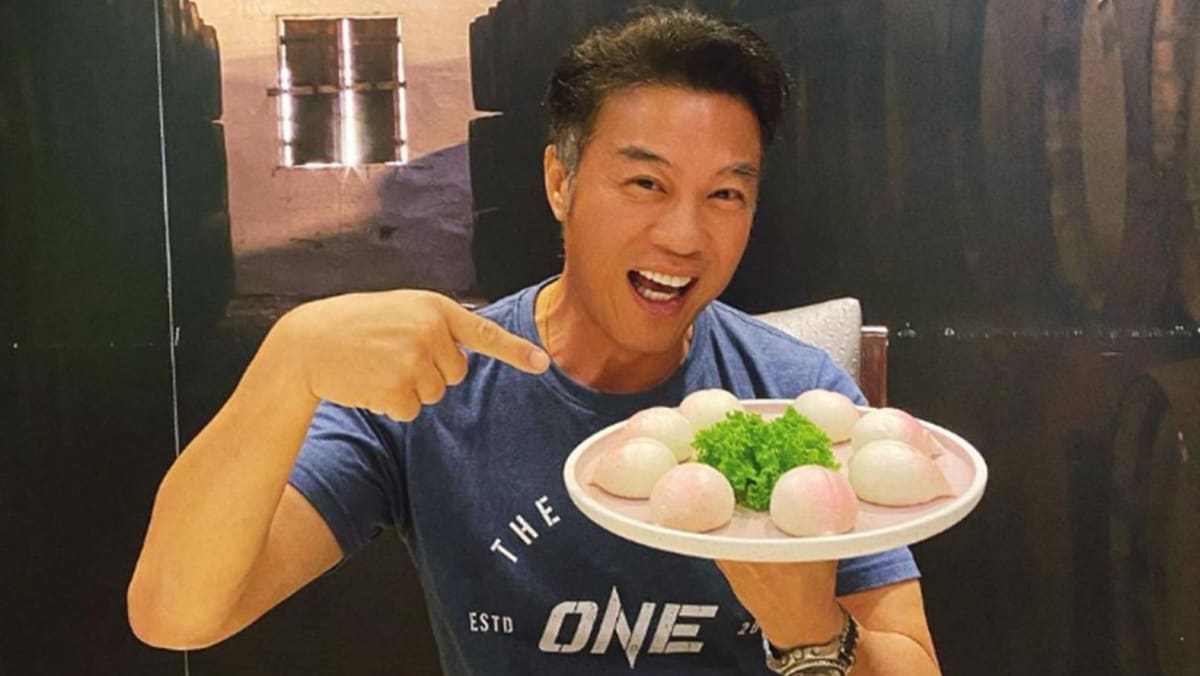
For those new to exercise or haven’t been active for a while, he suggested jogging or brisk walking, especially for seniors, if they have joint issues. “You don’t have to run for at least half an hour to get results,” he said. “If you’re a beginner and are struggling to jog for 5 minutes, then just jog for 3 minutes. It’s okay. Your stamina will improve with time.
“Rest when you get tired,” he continued. “The last thing you want are injuries. When you’re injured, it’ll set you back in your exercise routine and cause you to fall off the bandwagon. Then, it’s another uphill task to pick it up again after recovering.”
LIFT WHAT YOU CAN
If you want training guidance, go to a gym for it. “There are so many gyms to choose from… commercial gyms to those run by Active SG, Safra, Home Team and community clubs,” said Zheng. “It’s not necessary to spend a lot of money on gym memberships.”
When you’re there in the gym, don’t make it about how heavy you lift, said Zheng. It’s not a number game. “It’s about using what you can manage when you’re starting out. If you can lift 5kg, then start with 5kg. Slowly, as you build up your strength and endurance, you can progressively increase the weight you use. You don’t have to use heavy weights to gain health benefits.”
WHEN TO REST, WHEN TO PUSH ON
“There will be days when you don’t feel like doing anything. You can feel the fatigue everywhere if you’ve overworked yourself physically or mentally. If you feel out of sorts, rest,” he said.
“Rest is also when your body builds muscles. Pushing yourself on would be unwise as you can get injured easily. Sleep, watch a movie by yourself or with family. Whatever you do, step away from work and the gym.”
But if your body is telling you that every day, it could well be laziness, he said. “Laziness is in your mind. You give yourself a lot of excuses.” Zheng advised using a timetable and setting up a routine. “For example, if you schedule your gym session at 8am, be there by 10am at the latest,” he said.
KEEP IT SIMPLE
There’s no difference between what a young and older person does to stay healthy, according to Zheng. To help you stick better to the changes to live healthier, the veteran actor recommended keeping it simple: Have ample sleep, hydrate, stay positive and watch your diet.
“You can’t run away from these maxims. But people don’t put them into practice because they think: How can it be so simple? So, they look for over-complicated methods. But really, it doesn’t have to be that way.”
North Korea’s Kim Jong Un vows to develop cooperation with China to ‘new high’
SEOUL: North Korean leader Kim Jong Un met with the Chinese delegation who visited Pyongyang to celebrate the 70th anniversary of the end of the Korean War and vowed to develop the two countries’ relations to a “new high”, the North’s state media said on Saturday (Jul 29). Kim hostedContinue Reading
Commentary: Thailand moves forward in social media election
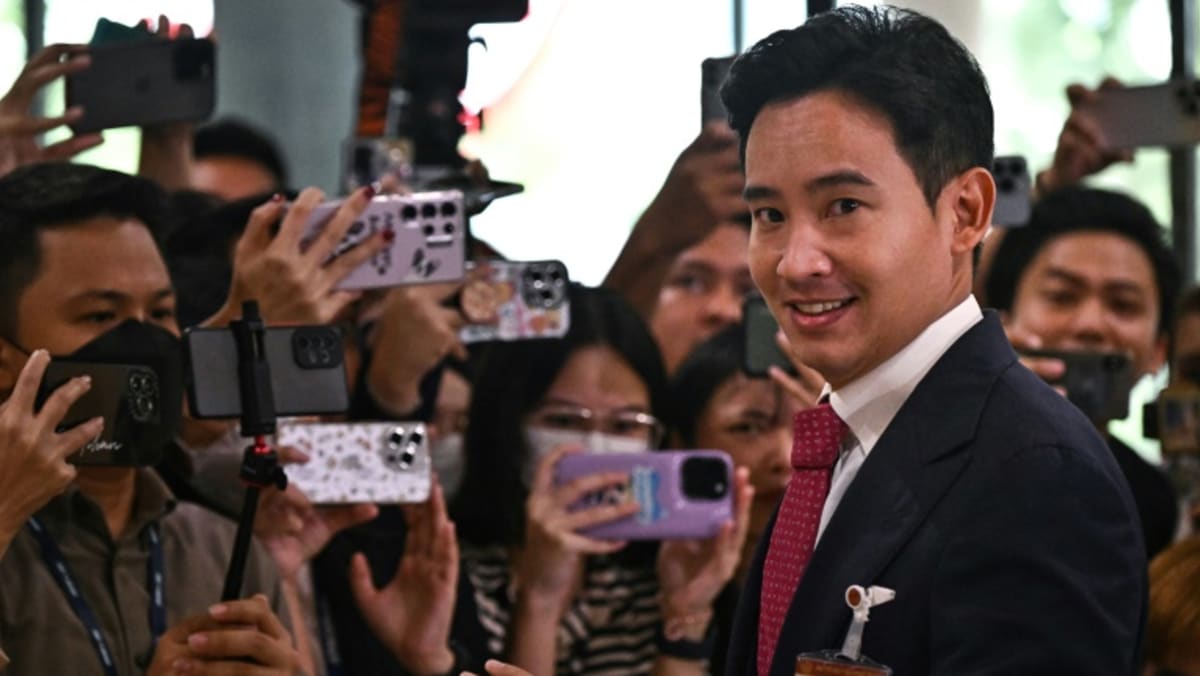
SYDNEY: In Thailand’s general election in May, the Move Forward Party (MFP) emerged as the big winner with 151 seats thanks in large part to social media.
While all major political parties were actively campaigning online, the MFP’s influence far outstripped their opponents. The key to the MFP’s online success was its fan base, who came together, largely organically, to promote and support the party.
As one of the world’s most social media active countries, social media platforms were key battlegrounds for Thailand’s May 14 general election. With more than 80 per cent of the population now on social media, online campaigning was no longer optional.
The most popular hashtag used in the lead up to the election day, across Facebook, Twitter and TikTok was #election23, and the MFP dominated online conversations relating to the election and its content was engaged with the most.
Compared to other parties, Thai people talked, shared and interacted with the MFP online the most. This made MFP content most visible to social media users as platform algorithms prioritise the most popular content.
On Facebook, 56 per cent of the most popular posts using the hashtag #election23 were about the MFP. These posts garnered more than 10 million interactions (such as liking and sharing) with more than 80 per cent eliciting positive sentiment.
Pheu Thai came second with 15 per cent of the posts using #election23 being about the party. Pheu Thai posts produced 1.6 million interactions – more than six times fewer than the MFP.
How one small community is fighting off the dengue fever scourge, as cases accelerate rapidly in Thailand
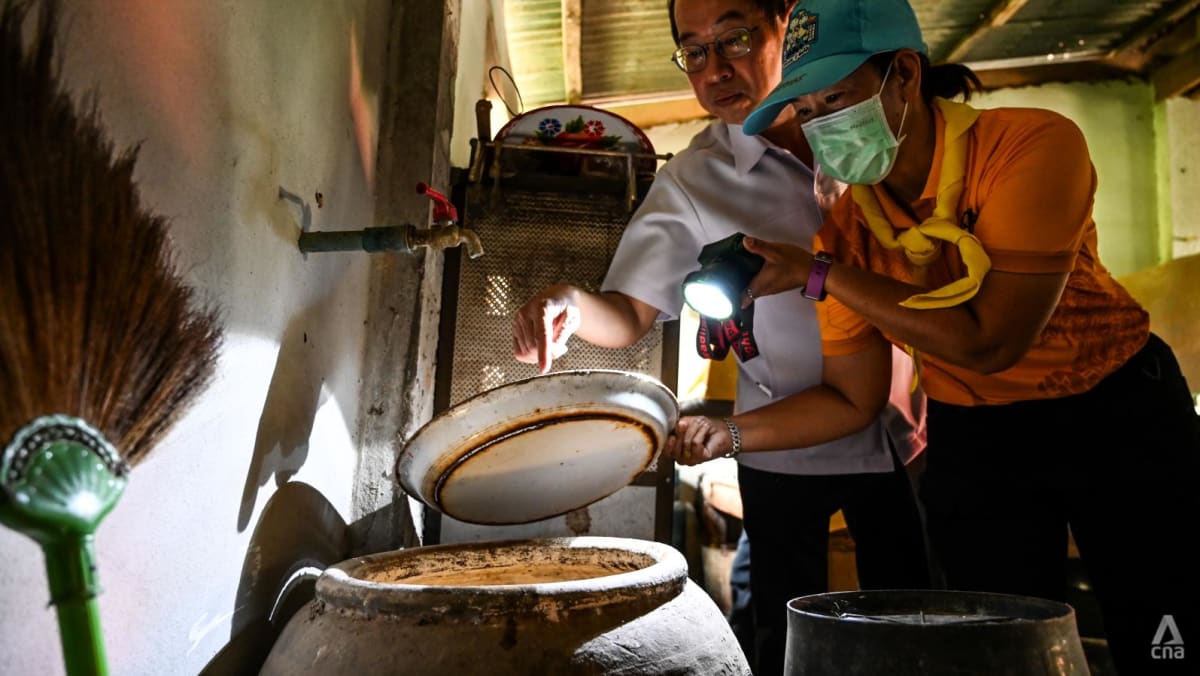
CLIMATE CHANGE HELPING DENGUE SPREAD
Dengue fever is a disease closely associated with the environment. Rainfall, temperature and airflow all play a part in assisting transmission.
Ongoing research shows the direct connection between climate change and the spread of dengue fever at higher rates and to previously unaffected communities.
In temperate zones with warmer temperatures, mosquitoes may expand their habitats and are able to live in places they could not previously.
“The primary factor influencing this situation is temperature, as even a one-degree increase can result in a 10 per cent higher chance of dengue fever occurrences, according to the research we have conducted,” said Kanchana Nakhapakorn, an associate professor with expertise on dengue fever and climate change at Mahidol University.
Nakhapakorn explained that mosquitoes tend to stay inactive and rest when the temperature is lower – below 24 degrees Celsius. But when the temperature rises, they become more active and are able to fly around in search of food.
“If the temperature rises, the developmental process from eggs to larvae and adulthood of mosquitoes accelerates, the chances of them reproducing and spreading increase significantly. This also makes it easier for disease transmission,” she said.
With increasing urbanisation, common throughout Thailand and the Southeast Asia region, reduced airflow in cities means mosquitoes have better conditions to breed.
The onset of the atmospheric phenomenon known as El Nino is also expected to bring elevated temperatures and the likelihood of extreme weather that could exacerbate dengue spread.
Record heat has already been recorded across many parts of Asia this year and changes to rainfall patterns could prove problematic when trying to contain the disease.
“Since dengue fever occurs due to mosquito bites, improper environmental management could lead to its continuous occurrence. If there is an abnormal amount of rainfall, we surely have reasons to be worried and concerned,” Wisit said.
“When there is frequent rainfall, even small puddles can become breeding grounds for mosquitoes that transmit dengue fever,” he added.

